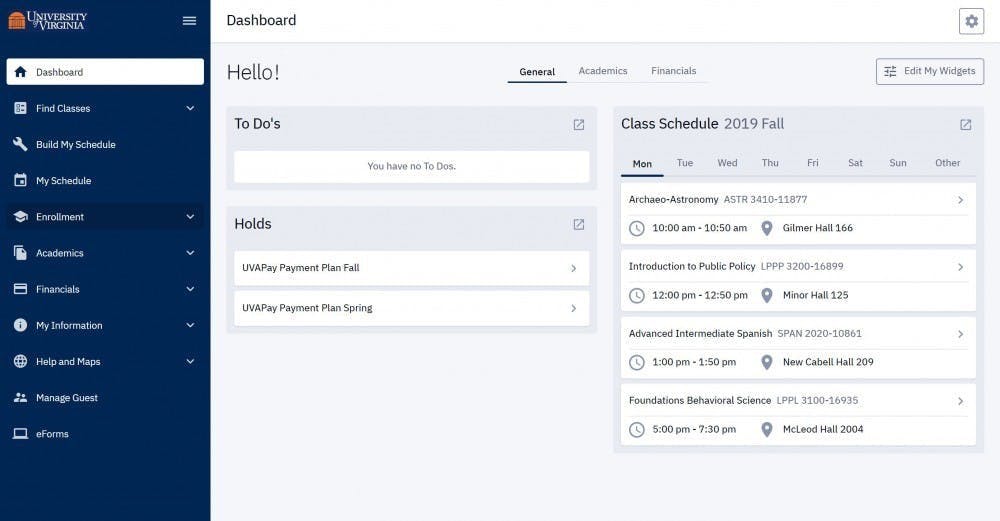Earlier this month during course registration, the increasingly common tradition of Student Information System malfunctions reared its ugly head once again. The outage — lasting for several hours on the first day of enrollment — affected thousands of fourth-year students and was purportedly linked to a “piece of inefficient code found within the new SIS interface,” mirroring a 2017 incident of the same nature. What further aggravates this situation is the fact that the system of randomized enrollment ends up hurting many academically gifted students who have the ill fortune of being assigned later time slots — which this year were more vulnerable to technical setbacks. Time and time again, University ITS has proven itself incapable of formulating a comprehensive remedy to this recurring issue, so perhaps a novel approach to enrollment is necessary, prioritizing efficiency and equity among students.
I observe two primary problems with our current system. First, University servers are simply incapable of handling surges in active sessions each semester — an inevitability of the enrollment process. Chief Information Officer Virginia Evans has cited increases in the number of servers to theoretically prevent these seasonal outages. But, if the solution was truly as simple as adding a few more servers, common sense tells us that this would have been done a long time ago, yet blackouts and slowdowns persist year after year. Second, allotment of signup times are arbitrary and inequitable. Since students are forced to use such volatile systems, it is unfair that some are randomly subject to outages, potentially jeopardizing an entire semester.
To address the main concern of unmitigated activity spikes, I think a simple solution would be to disseminate enrollment timeslots over a two-week timeframe, rather than the traditional one-week scope. In essence, half of each class would begin enrollment on sequential days, with fourth and third years in the former week and second and first years in the latter week. That way, the stress on SIS servers would be cut in half for the entire signup duration — resulting in the same quantitative effect that doubling the number of servers would have. Moreover, students would still have several months during which to modify their course selections, and there would be no demonstrable effect on wait lists or enrollment probability since the same quantity of students would be signing up, just across a broader time frame.
That being said, while such a change would reduce the strain on University servers — thereby ameliorating many of the issues stemming from finite bandwidth — slowdowns and outages would not be wholly prevented, and those with later time slots would still be at a stark disadvantage. I find it unethical that random chance in enrollment assignment is the deciding factor for the fate of a student’s entire semester — irrespective of that individual’s prior academic achievement. Plain and simple, students who perform better than their peers should be rewarded with more preferable signup times that would give them better enrollment probability and avoid potential late-day technical setbacks.
A straightforward way of implementing such a merit-based system would be to simply assign enrollment times based on a student’s GPA in the preceding semester. Obviously, this would only be the deciding criterion from 2nd year onward, but I think an extrinsic reward system would serve as motivation for students in addition to being a fair way of allocating signup times. While students would still have a distinct advantage over underclassmen, it should be staggered so the highest academic achievers will compete against those in their own year. Lastly, it will always be possible for a student to quickly reverse their fate, as only the previous semester’s GPA would be considered.
A notable counterargument to such a system is the possibility of a self-fulfilling prophecy. Those students with high GPAs would theoretically be more likely to select easier classes, in turn setting them up for better enrollment times in successive semesters. While this argument has merit, I think an easy way of mitigating this risk would be to consider major GPA after declaration, thereby excluding introductory courses as well as GPA “boosters.” That way, even if students select easy classes to artificially inflate their academic performance, it wouldn’t help their enrollment time in successive semesters. Another counterargument is that some majors with easier course work would have an advantage, and the available data indicates that this is indeed the case. However, a simple solution would be to simply weight major GPA relative to the publicly available averages, so that nobody receives an inherent advantage.
Extending enrollment so that it takes place over the course of two weeks will reduce the strain on University servers and holistically make the process a lot less painstaking and stressful. Coupling this with a merit-based system for signup assignment will ensure that the most academically committed students are rewarded for their efforts. Together, this would help to create an efficient, ethical means for course enrollment, bolstering the spirit of the student body with healthy competition in the process.
Milan Bharadwaj is an Opinion Columnist for The Cavalier Daily. He can be reached at opinion@cavalierdaily.com.







